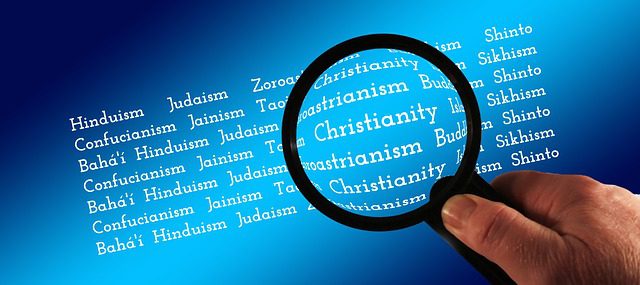
Has the word “evangelical” acquired negative connotations? Does the term need to be retired?
Many “evangelicals” think so, believing that the term has become so associated with right wing politics sand with support of Donald Trump that it turns off the unchurched and has become an obstacle to evangelism.
The term “evangelical” derives from the Greek word for “Gospel” and denotes a particular strain of conservative Protestantism. But now an increasing number of Muslims, Buddhists, and Hindus are describing themselves as “evangelicals.”
Christian sociologist Ryan Burge describes his research in his post Are We All Evangelicals Now? How The Term Has Grown To Blur Theology And Ideology.
He found that actual evangelicals are, indeed, dropping the term, with only 75% identifying in that way. But non-Protestants are now using the term, including 20% of non-white Catholics and 29% of the Orthodox. Among Mormons–sorry, Latter-Day Saints–over a third, 34%, consider themselves to be evangelicals. Such statistics show an increase over the last decade.
This is also happening among adherents of religions that are not Christian at all. One-fifth of Muslims (20%) consider themselves to be evangelicals. As do nearly 10% of Buddhists and 15% of Hindus.
Burge concludes,
There’s an argument to be made here that evangelicalism is not just influencing all of American Christianity, it’s seeping into all aspects of American religion. More Catholics are evangelical today than ever before, the same is true for mainline Protestants. Many Muslims, Jews and Buddhists now take on the moniker. It’s no secret that many Americans have antipathy toward evangelicals, in no small due to their embrace of Donald Trump. But it’s surprising that all that political baggage has not made the term radioactive. In fact, that linkage between Trump, the GOP and evangelicals has actually opened up the “born-again” identity to a larger segment of American religion. If that’s a positive or negative development is something that social scientists and theologians will be working out for decades.
How can this be? Burge finds correlations with such things as church attendance or the equivalent in other religions. Those who identify as evangelicals in whatever religion they follow tend to attend services more than their co-religionists who do not say they are evangelicals.
I suspect that what is happening is not so much that religions are changing but that the language is changing. Linguists and historians of language recognize a phenomenon known as “semantic broadening.” A word acquires a broader meaning than it started with. The word “dog” used to refer to a particular breed of canine, but the word has broadened to include them all.
My sense is that “evangelical” is now being used as someone who is not just religious but very religious. It perhaps includes from the word “evangelism” the sense of wanting to convert other people to one’s religion. Thus, some companies today are calling their marketing employees “evangelists.”
In his survey, Berge worked in another descriptive term, asking whether the respondent is evangelical or “born again.” It may be that Muslims and other non-Christians who had a conversion experience or a personal awakening to their religion are considering themselves “born again” and thus evangelical.
Which reminds us that religion has to do with the content and the object of one’s faith–not just the experience, or converting from one religion to another, or the level of commitment.
Image by Gerd Altmann from Pixabay














